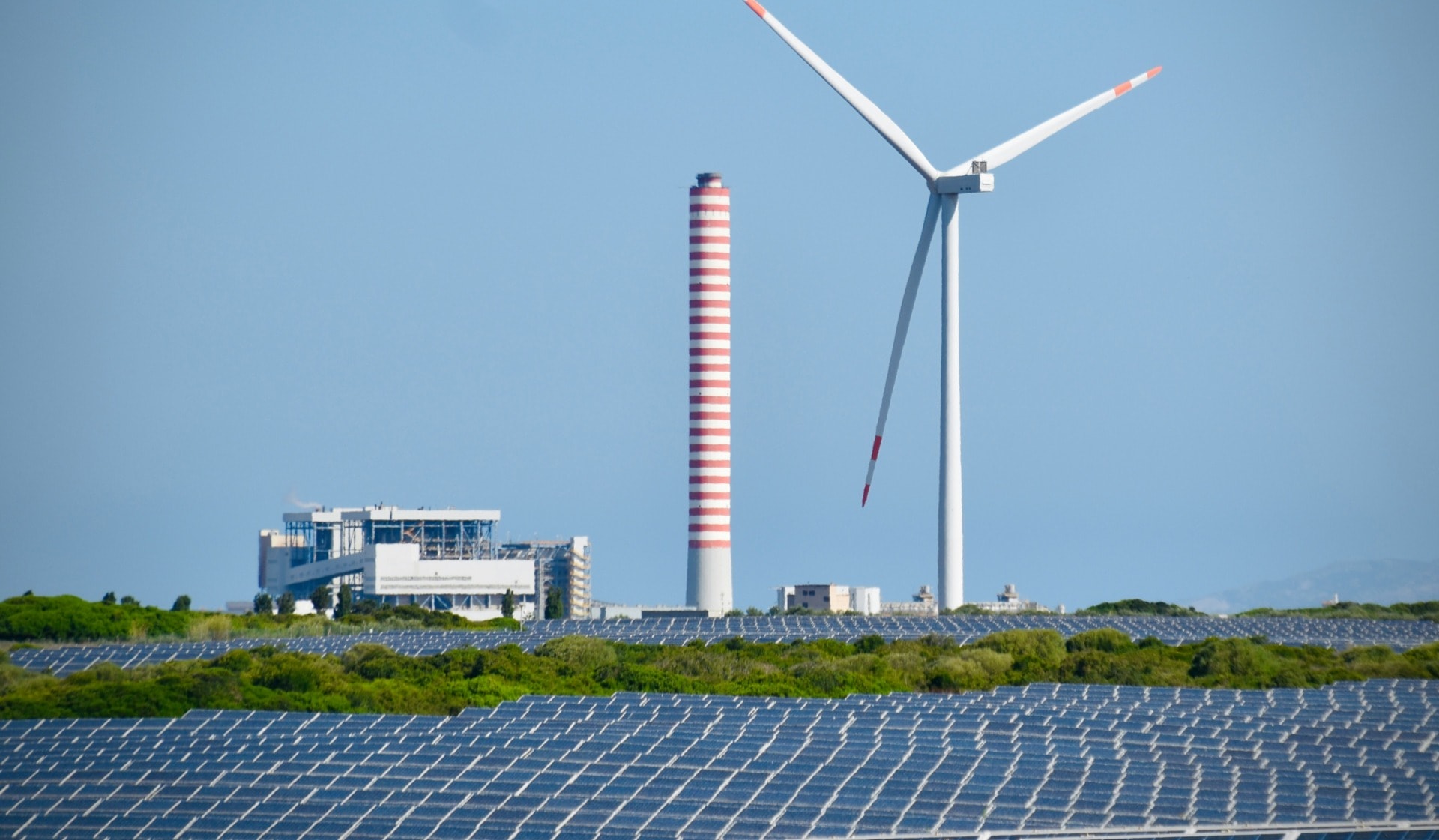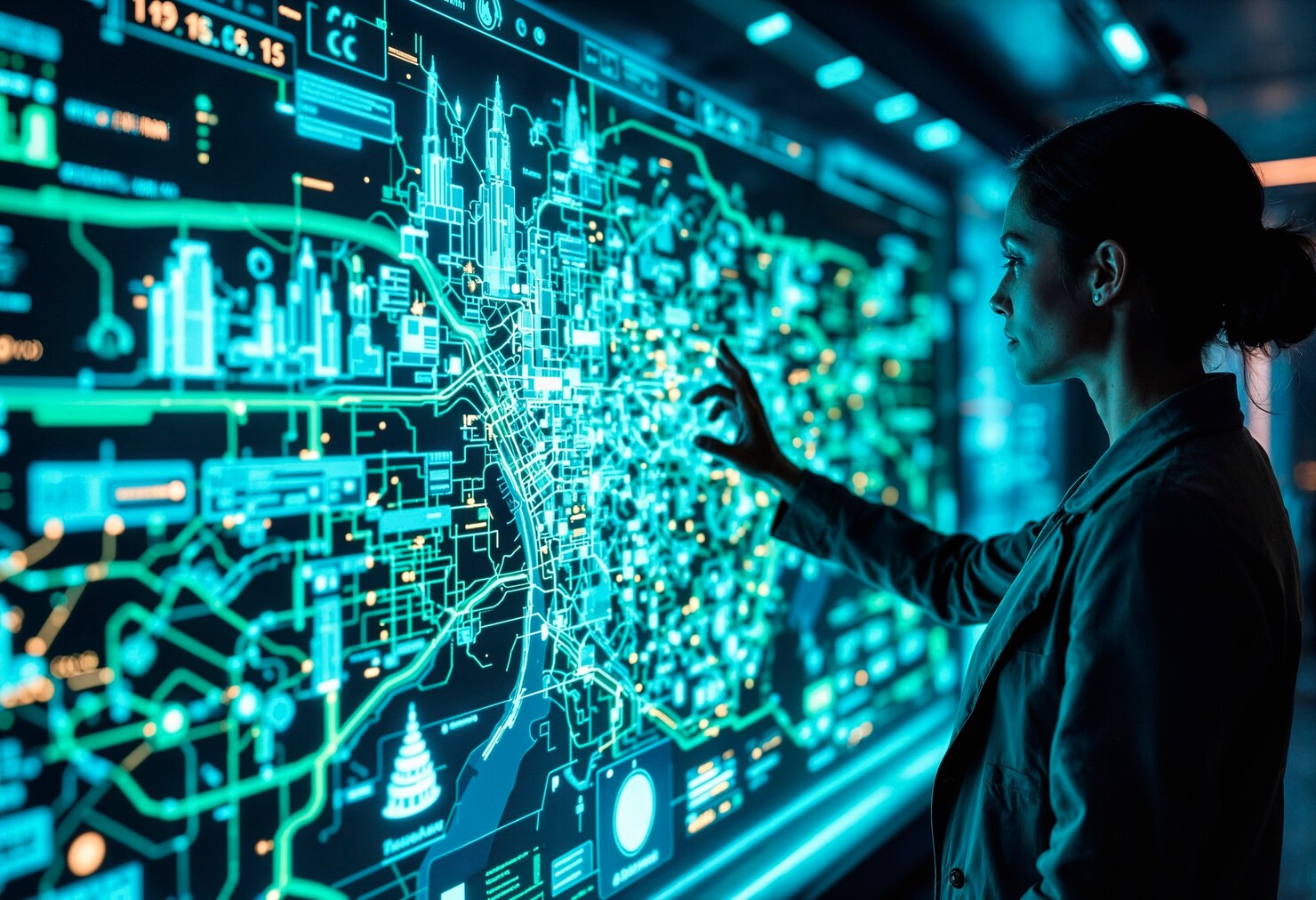What’s more radical? Calmly following a path towards an almost certain human crisis or trying something new, on the fringe, something disruptive, that has a chance of changing our course for a better future. That is when companies “should zoom” out for a sustainable planet.
As I said in my previous article, “Climate Change: Incrementalism is no Longer a Viable Option”, the pace of climate change is accelerating and small steps won’t be enough. It’s time for disruptive thinking.
At one time it was considered to be progressive for a company to look inward at ways to reduce its environmental and social impacts. Whether through cost savings, market expansion and/or public relations, most companies could identify several business opportunities by operating more “sustainably”.

A sound strategy meant focusing on how much water, materials and energy your company used and your efforts to reduce those numbers year over year. To say that your company used 12% less water or 9% less energy was admirable in a world where incremental thinking was sufficient and you could tout your slow and steady progress — but times have changed.
Related Articles: Can Greta’s Straight Talk Bring Moral and Financial Responsibility Into the Climate Conversation? | The Carbon Tax Works For Billionaires | Cities key steps to fight against climate change
“Outputs” Continue To Worsen
Those metrics, while still valuable as an internal optimization tool, have failed to evolve. They simply miss the mark in terms of their ability to address our increasingly urgent global environmental challenges. When looking at the economic system as a whole, corporate sustainability has helped businesses slow down its rate of negative “inputs”, but the pace has been too slow, and at best, we’re only getting closer to neutral, while the “outputs” continue to worsen. Meaningful change has eluded us. We need action that takes companies forward to where there’s not just a slowing of harm but rather a tangible improvement.
As it currently stands Corporate Sustainability is not part of the solution — it’s the problem, and every major ecosystem on the planet is worse for it.
Broken System
The framework of corporate sustainability contains a serious flaw in that it fails to consider the broken system within which companies operate. This system is facilitating the destruction of our planet via a network of policies and accepted practices that promotes, sustains and protects climate-harming and ecosystem destroying norms.
Corporate sustainability and CSR initiatives that focus on repairing harm after the fact rather than avoiding it in the first place have fallen into a dangerous trap of incrementalism. These well-meaning corporate initiatives are literally turning their back on the broken system that is at the core of the problem. It is this mode of thinking that has allowed climate change to ramp up and take on a life of its own and it must be confronted.
These well meaning corporate initiatives are literally turning their back on the broken system…
A perfect example of this is how many companies will look to further their sustainability image by trading one bad thing for another seemingly less bad thing, that has less of social stigma. Recently a Canadian grocer, Sobeys announced that it will be replacing plastic bags with paper bags. Perhaps this is an incrementally positive change but it completely lacks imagination and it fails to confront the structural flaws and accepted norms of the system. Why do disposable bags have to play any role in the transfer of groceries from the store to your home? With a little effort and a new set of climate protecting policies, I’m sure that we could find another way.
Incremental half measures are happening all around us with little or nothing to show for it, and yet we still cling to this failed approach. We make up excuses like we just need to find the right business case or we can do well by doing good but it’s not working; every major ecosystem on the planet is in a state of decline.
The system itself is causing the harm and looking inward at your own company (despite the odd outlier) will only ever be able to make incremental improvements at the margins. This “zoom in” approach leaves the broken system intact and limits our ability to drive the necessary disruptive change.
Clearly Identify the Problem
We’ve been incorrectly conditioned to think that business via market solutions can be the solution to our environmental and social problems; we just need to be more innovative. This is neoliberal nonsense. We’ve been looking for the elusive business case for the better part of two decades and there’s a reason that we can’t find it — it doesn’t exist. Environmental and social exploitation is cheap and business is designed to profit — those two competing goals do not mesh. And for those of you who want to cite examples of small wins, I get it, there are some, but we are not making the changes at scale and it’s a dangerous distraction.
“We’ve been looking for the elusive business case for the better part of two decades and there’s a reason that we can’t find it — it doesn’t exist.”
The time has come to take the bold step of clearly identifying the “system” as the source of the problem. We must look this uncomfortable truth squarely in the eye, take a deep breath, and acknowledge the role that individual companies play in propping it up and maintaining the structural flaws which lay at the root of the problem.
A New Kind of Leader

The sustainability leader of the future must publicly call out how the system unfairly exploits ecosystems and human labor for profit, while simultaneously blocking efforts to operate more sustainably. The days of showcasing eco-efficiency, swapping one harm for another, cause marketing and philanthropy must be called out for what they are, distractions from tackling the main issue.
For those who argue that doing something is better than doing nothing, I agree, but we shouldn’t fool ourselves and take more credit than we deserve. We need to recognize that we can no longer be satisfied with incremental changes at the margins when we’re facing a variety of ecological emergencies. In the grand scheme of things, swapping paper for plastic bags is hardly worth mentioning.
“…Starbucks has chosen to trade one impact for another…”
Another example of misguided sustainability is “Starbucks Replacing Plastic Straws with Strawless Lids | Like a Sippy Cup for Adults.” Instead of refusing to be a huge part of the plastic pollution problem and to rethink their model, Starbucks has chosen to trade one impact for another in an effort, it would seem, to be part of the solution. One could argue that this effort takes good people away from finding real solutions.
If this is the best that Starbucks can come up with, then maybe, if they are really serious about their desire to reduce plastic pollution, they would close their CSR department and use that money to fight for a policy that ensures that the entire industry eliminates cups immediately. In a world where policies and norms allow corporations to leave their pollution mess for society to solve, this policy-fighting strategy would do far more environmental good than creating a sippy cup for adults.
…if they were serious…they would fire all of their CSR people and use that money to fight for a policy that ensures that the entire retail food industry eliminates cups immediately.
Going forward, companies will have to take a stand; to say nothing will amount to being complicit with the status quo. New sustainability leaders will be recognized for calling out our broken system and for working towards disruptive systems change. If this seems radical, perhaps it is, but is it more radical than simply allowing the climate-destroying status quo to continue?
“Zoom Out” and Ask Hard Questions

Companies need to drop the charade and admit that their efforts to be sustainable have largely failed. It’s time to stop pretending to be part of the solution and come back to the table and be a real partner for positive change. But this time, you’ll have to shed the misguided idea that there are win-win market solutions for every problem.
Fresh Eyes
To get started, companies need to look at their industry with fresh eyes. They need to question how is it that their company can extract wealth out of the economic system while legally passing along the environmental and social harm to society. They need to identify and publicly challenge their industry’s climate-harming and ecosystem destroying policies and norms. They need to admit that they are active participants who regularly benefit, support and contribute to the system.
Assumptions
They need to question the assumptions of how business should be conducted in their industry and how those norms came to be accepted. They need to question how their industry is able to normalize practices that are environmentally and socially harmful simply because the industry deems that there is no other cost-effective way. They need to look at their role in confusing the public about these norms through their marketing and public relations campaigns as well as their support of lobbying efforts and industry associations.
Roadblocks
Companies need to take a close look at the structural roadblocks that are holding them back from achieving more positive outcomes. Much of the harm that companies do is a reflection of their supply chains; everything from palm oil, sugar cane, cocoa, trees, plastic, energy, coffee, etc., needs a closer look.
Questions to get started:
- What are some norms, policies, and laws in your industry that allow companies to contribute to environmental and social harm without paying fair compensation, even though it’s legal to do so?
- Is there a standard practice (norm) in your industry that is harmful to society but the industry deems that there’s no other cost-effective way to conduct business, so efforts to find alternatives are minimal and society is left to deal with the repercussions?
- What are the biggest barriers in your industry to operating more sustainably? Why do they exist? Who benefits the most from them? What is standing in the way of change?
- How does our company and industry benefit, support and maintain the status quo?
- Do lobbyists and industry associations fight to maintain the status quo? Does your company support and/or contribute to those efforts?
The Outcome
This process is meant to rebalance a flawed system that established laws, policies and norms that benefit multinational corporations at the expense of those who have little or no voice; the environment, the poor, children and future generations. As with any strategy, the spirit with which the effort is undertaken will play a large role in determining whether it succeeds; If companies go about this process with the goal to maximize societal wellbeing, it could have major benefits for the vast majority of people.
“To achieve success means that sustainability leaders will need to work against the desires of many in the “elite” class…”
Companies that are currently shielded from taking responsibility for their impacts will feel some financial pain as capital is reallocated to repair and prevent future harm. To achieve success means that sustainability leaders will need to work against the desires of many in the “elite” class, some of which who will use their wealth and influence to prevent change. This will result in attacks that become increasingly vicious as clarity and sanity is brought back into the system and the structural flaws are corrected. Ironically these attacks will be the best indicator as to whether the strategy is working.
The sustainability leadership position would drastically change for the better under a “zoom-out” approach. After years of working against the “system”, a reset would occur, with new opportunities to drive meaningful change.
Nothing Worthwhile is Easy
This is brand new territory for companies and it will require some adjustments to say the least. When companies “zoom-out” and look beyond the walls of their company, they will begin to see some uncomfortable truths about how they are complicit in a system that allows for social or environmental harm to be passed along to society. Companies will be forced to deal with the fact that they are negatively impacting the world without paying to compensate for that harm. Everything must be on the table from energy use, wages, environmental harm, social harm, species loss, deforestation, biodiversity loss etc..
“Companies will be forced to deal with the fact that they are negatively impacting the world without paying to compensate for that harm.”
For the skeptics out there, and I’m sure there are a few, why would a company ever do something that would potentially work against their bottom line? That’s a valid question and the answer might be as simple as, “they really don’t have a choice.” The changes mentioned in this article will come as a result of a system that has failed the vast majority of people.
Climate change mixed with a level of inequality not seen for nearly 100 years, is like a ticking time bomb and one way or another, people will demand change; in fact, it’s already happening. We can get in front of the coming change or wait, and allow it to be forced upon society in ways that we simply cannot imagine. The choice is ours — let’s not leave a mess for our children to clean up. We can do better.















